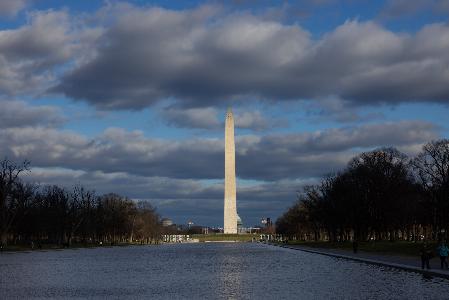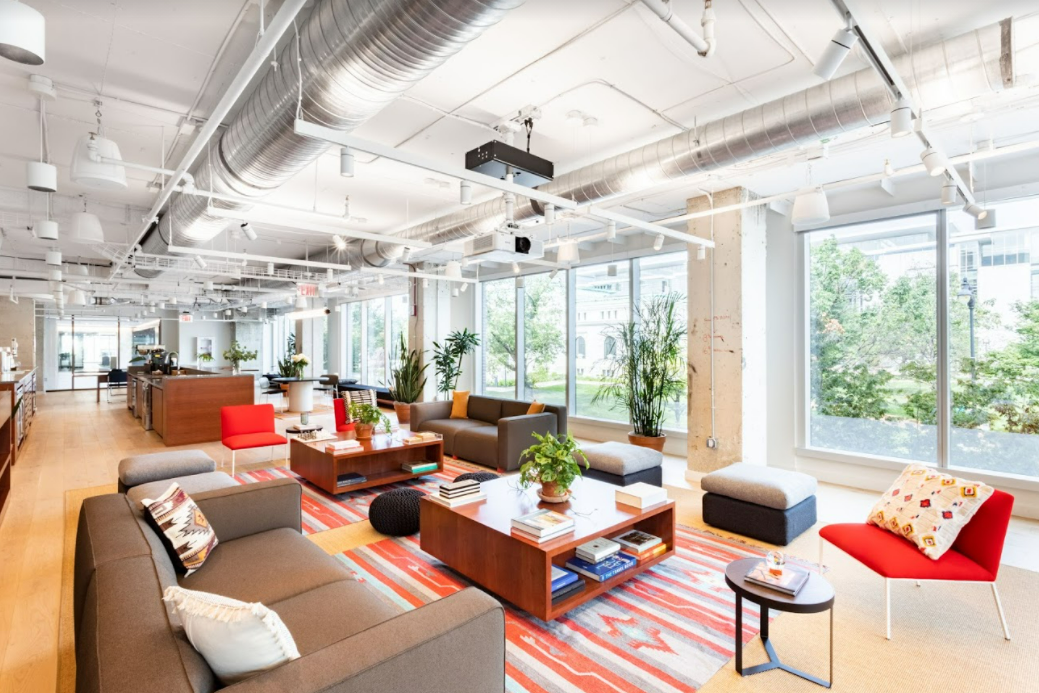This summer, the hot new office trend is…going back to the office.
To be sure, many are still on the work from home train in the midst of a global pandemic. But with more vaccinations getting distributed every day, not to mention parents who need a space to work sans-kids, many have decided to take the plunge and head back to work IRL. And be it coworking or general office space, employers are taking stock of who wants to be where. So, we asked representatives from coworking company WeWork and LocalWorks, a service that works with property owners to help fill empty office space, about the 411 on the RTW.
‘Energy is coming back’
According to D.C.-area Director Suzie Russell, WeWork locations remained open throughout the pandemic, but the coworking company has seen an increase in members in the District over the past few months.
“As the U.S. is getting vaccination rates up, we’re starting to see more and more members return to work, and it’s pretty great to see,” Russell told Technical.ly. “The buildings are starting to feel bustling again and energy is coming back.”
But as members return, it differs from the past model of 9-to-5, all day, every day. Russell said that many are embracing hybrid or part-time models in the coworking space, with Mondays and Fridays as the quieter days. For WeWork’s D.C. locations, it’s been about 50% of people in the space full-time, and 50% of members coming in for just a day or two, or even hourly, she said.
According to a WeWork study of about 2,000 employees and their post-pandemic plans, people are anticipating spending about 36% of the time at an office headquarters, 30% at home and 34% at a flexible, satellite or shared office space. WeWork has also launched two new product models to meet the need for flexibility: It now offers hourly booking to non-members, and a service model that offers members access to any WeWork in the world, 24/7. Between April and May, the company saw a 30% increase in usage of its new hourly booking service, called WeWork On Demand, in DC.
“Flexibility is completely the new model of work these days, and hybrid work is particularly important to companies,” Russell said. “We’re seeing our members return back typically about three days a week.”
Adding space
Barry Greenfield, founder of LocalWorks, agreed. The company, which acts as an in-house, shared office space manager and helps primarily startup companies find office space in the suburbs of D.C., also remained open in 2020.
“During the pandemic, there were clearly two types of people: Those who were really concerned about COVID, and didn’t want to leave their house, and those that weren’t that concerned and said ‘I need to get out of the house’,” Greenfield said.
But in the last month, it has seen a particular vibrancy in the DMV, Greenfield said. LocalWorks is up to 90% occupancy in its spaces, and plans to add to its 20 locations in the Chicago, D.C. and New England suburbs. Greenfield said he expects the company to have 30 spaces by the end of the summer.
He added that the company’s model of month-to-month office lease arrangement seems to be fitting particularly well in a post-pandemic world. Many companies are looking to try out various spaces, especially as more employees ask to continue working from home and they reduce the size of their in-office footprint. Plus, he added, LocalWorks has seen a lot of people switching jobs, or hobbyists who took their product to sites like Etsy during the pandemic and now want to try out official office space as interest grows.
“People want something not tied to a 5-7 year lease,” Greenfield said.

A LocalWorks office location in Bethesda. (Courtesy photo)
Another new trend Russell has seen follows the move many made to the suburbs in the pandemic. She said many members are coming into their office headquarters a day or two a week, but then using WeWork spaces that aren’t their prime location for the remaining days. The D.C. locations are popular during the heart of the week, she said, while the Maryland and Virginia locations are more popular on the bookends of the week.
“We’re seeing more a lot of members swiping into buildings that they had never been into pre-pandemic and that are closer to home, walkable,” Russell said. “It’s great because they can pop in, get out of their house, have reliable internet connection and meet with their coworkers in a safe environment and use whatever space is most convenient to them.”
Join the conversation!
Find news, events, jobs and people who share your interests on Technical.ly's open community Slack

DC daily roundup: Tyto Athene's cross-DMV deal; Spirit owner sells to Accenture; meet 2GI's new cohort

DC daily roundup: $10M to streamline govt. contracting; life sciences might dethrone software; Acadia's new $50M

DC daily roundup: the DMV's VC cooldown, SmartSigns for safer driving; Rep. Schiff's AI copyright bill


